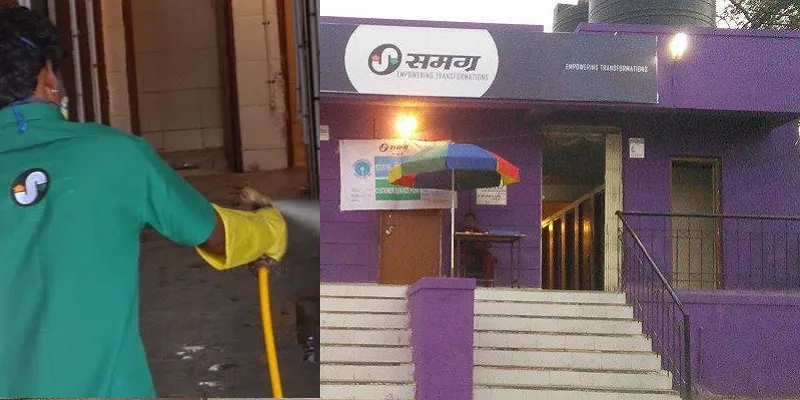6 sanitation startups in India that are creating impact by making toilets accessible
Of the entire population in the world that defecates in the open, 60 percent reside in India. This article lists out some of the initiatives trying to work out this problem.
Sanitation is a massive problem in India, both in the urban and rural context. With increasing population, the problem is growing. Open defecation in rural areas and lack of facilities in the urban regions has created a situation that needs urgent attention. This is one of the largest problems that the country faces, and there are hardly any initiatives tackling the issue. The story of Sulabh International is well known but we looked around more and came up with these six initiatives that are doing promising work when it comes to making toilets more accessible:
- 3S (Sanitation Solutions Simplified) : One of the pioneers in the field, 3S provides portable restrooms, affordable solutions, luxury restroom containers and cleaning services. Most suited for construction sites and events, this company was started by Rajeev Kher in Pune back in 1999. Currently, the organisation manages 155 million litres of liquid waste serving more than 1,55,000 people daily.
- Basic Shit: As the name suggests, Basic Shit aims to create a clean and safe environment for public sanitation. Started in 2014 from Dwarka, New Delhi by Ashwani Aggarwal, Basic Shit builds hygienic, low cost, portable urinals that can be set up by unskilled labor in public areas where people urinate in the open frequently. The urinals are connected to the sewers through manholes to ensure correct disposal of the waste and are made from 20-litre water jars (biodegradable recycled plastic) with tin sheds to cover a unit.
- Svadha: Started by Garima Sahai and KC Mishra in 2014, Svadha integrates the entire sanitation value chain. It establishes an army of entrepreneurs to provide access to quality, affordable and sustainable sanitation solutions. Svadha does this by owning the full stack from enabling partners, getting supply and tech and training implementing partners. Supported under Toilet Board Coalition’s first accelerator programme, Svadha operates from Odisha.
- Ekam Eco Solutions: Based out of New Delhi, Ekam Eco Solutions was started in 2013 by Vijayraghavan Chariar and Uttam Banerjee. It works in the domains of sustainable sanitation, value-added bamboo products, and sustainable livelihoods. The company has developed a waterless urinal called Zerodor, which is a completely non-consumable and non-chemical-based mechanical device. Conventional water flush urinals use approximately 2-4 litres of water for flushing, and Zerodor solves this problem by giving a simple attachment that can be installed in less than 10 minutes with existing urinals.

- Samagra: Started by Swapnil Chaturvedi, ‘Poop Guy’ of Pune, Samagra is in the business of making good quality and accessible toilets for the urban poor. Supported by Bill and Melinda Gates Foundation, Swachh Bharat Abhiyan and more partners, Samagra works primarily with design and behaviour change to reach a more sustainable future. The company builds toilets that have basic services like lighting and ventilation, and goes a step further by providing regular maintenance services, sanitary dust bins and kids accessories. They also encourage behaviour change by workshops and door-to-door surveys.
- Bankabio: Started by Namita Banka from Telangana in 2012, the company is engaged in promoting and developing innovative environmental-friendly products and services for human waste management system.The company deals with manufacturing, supplying and installation of bio-tanks for digestion of human waste as complete solution, rentals and AMC of mobile biotoilets, consultancy for development of large bio tank, waste water treatment and recycling solutions.
These initiatives are examples of people who have shown tremendous grit to work towards a problem that seems so large at the onset. The developing world needs more and more of these initiatives, and a movement towards better sanitation globally.
If you know of more initiatives or want to speak about the issue, drop a line to us at [email protected], or comment here.







